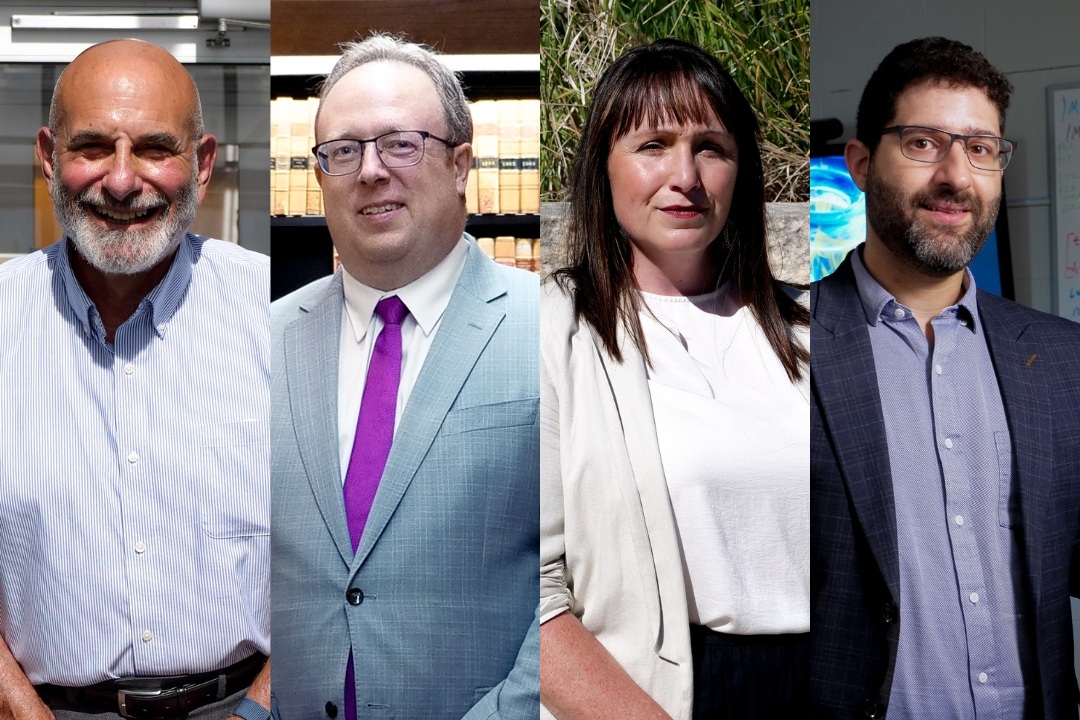
Four USask researchers recognized by Royal Society of Canada
Four University of Saskatchewan (USask) researchers have been recognized with one of Canada’s highest academic honours for invaluable contributions in their fields. Dr. Dwight Newman (DPhil) and Dr. Leon Kochian (PhD) have been named Royal Society of Canada (RSC) Fellows, and Dr. Steven Rayan (PhD) and Dr. Allyson Stevenson (PhD) have both been named College Members of the RSC.
By MATT OLSON, RESEARCH PROFILE AND IMPACT“USask has a proud history of attracting top-tier researchers and scholars from around the globe. These four inductees have made exceptional contributions in their fields and are a reflection of USask’s commitment to driving innovative research that is shaping our world," USask President Peter Stoicheff said.
The RSC is considered the most prestigious collection of Canadian scholars, artists and researchers across a vast interdisciplinary field. The RSC fosters intellectual leadership for Canada and for the world.
Being named an RSC Fellow is the highest honour that can be awarded in recognition of outstanding scholarly achievement. Membership in the RSC College of New Scholars, Artists and Scientists is presented to exceptional mid-career researchers whose significant contributions and accomplishments are recognized by their peers and other leading researchers.
“Researchers, scholars and artists at USask strive to be what the world needs, and it is wonderful to see some of our university’s top scholars earning acclaim at home in Canada,” said USask Vice-President Research Baljit Singh. “The diverse fields of expertise on display among our newest RSC recipients is emblematic of the depth and breadth of USask’s research capabilities.”
Leon Kochian
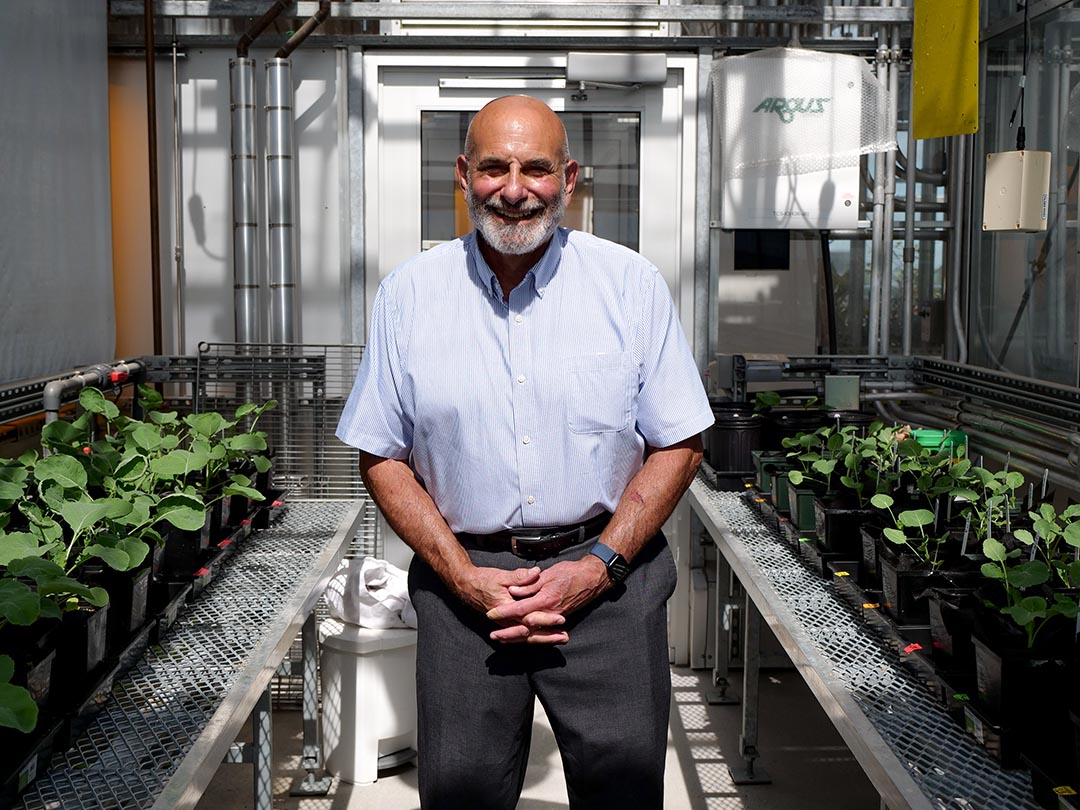
Dr. Leon Kochian (PhD) has spent more than four decades exploring plant biology, with a specific focus on plant roots.
“We call it a ‘hidden half’ because you can’t see them in the real world,” he said. “The reason we focus on the roots is they’re much more poorly understood than plant shoots, and we know how important they are to successful crop production. They provide the nutrients, the water and the anchorage for the plants.”
Kochian is a Canada Excellence Research Chair in Global Food Security and a professor in the Department of Plant Sciences in USask’s College of Agriculture and Bioresources.
The main focuses of Kochian’s plant biology and molecular physiology research include how crops handle abiotic stresses in soil. As plants need specific nutrients to survive and thrive, Kochian’s work explores the structure and biological function of root systems for crops – to improve how crops respond to low water and mineral nutrient availability to acquire these in sufficient quantities, as well as how they deal with potentially toxic minerals and chemicals in the soil.
Using innovative methods and technology, Kochian’s lab is exploring how root architecture helps drive enhanced nutrient and water acquisition, unlocking new knowledge that is significantly advancing today’s agricultural landscape.
“We’ve developed ways to image roots in the lab ... We can actually image and quantify the three-dimensional root architecture, which turns out to be a very important genetic trait that plant breeders can take advantage of to further improve different crop species.”
A self-described “science nerd,” Kochian credited his father for spurring his interest and excitement in science from a young age, helping him set up microscopes and a small lab to carry out simple experiments with him to understand the world around him.
From his early days as a curious young boy, Kochian has emerged as one of the world’s most influential scientists addressing food security. His work has made monumental impacts on how producers grow the food we eat. Kochian’s knowledge continues to create positive change with the influence of his mentees, students and team of dedicated scientists.
Kochian praises the research environment and his colleagues at USask, noting that he had the chance to work with a variety of research specialists to have an effect on the nutrition of the real world.
"It’s really a new frontier that’s just recently being explored,” he said. “Root biology is a hot research area now, as we better understand how root systems can be improved to enable the crop to do more with less – improving crop yields while using less water and fertilizer.”
Dwight Newman
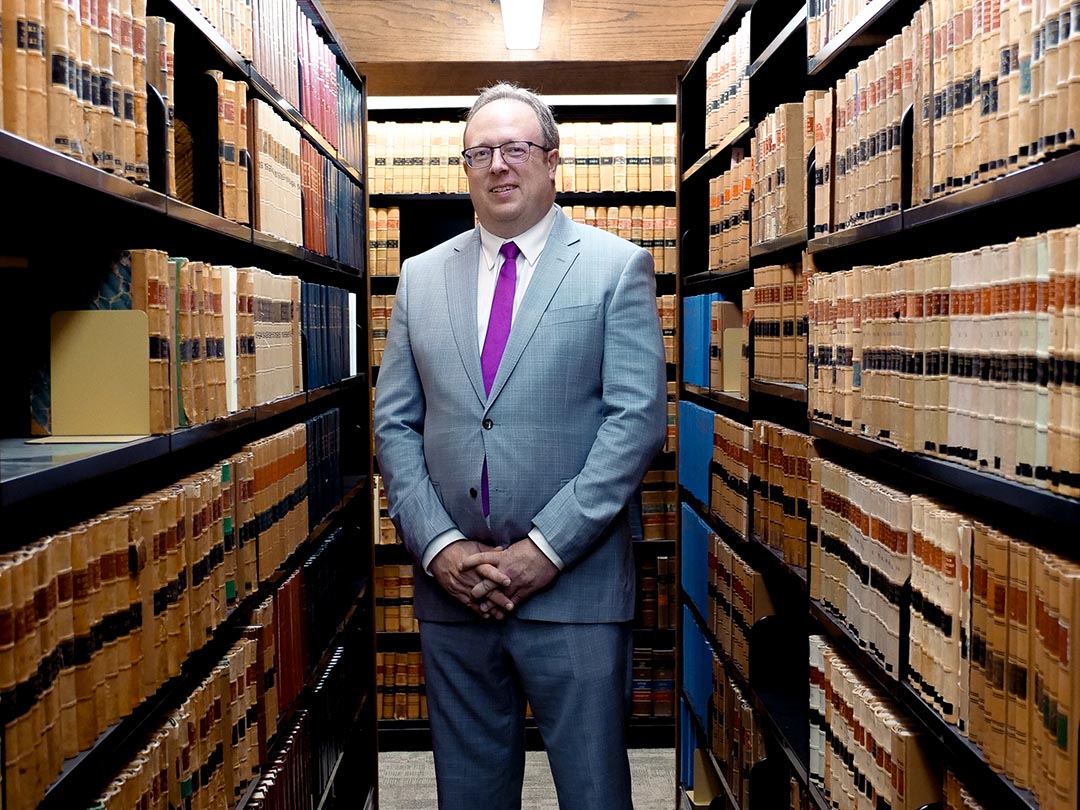
Dr. Dwight Newman (DPhil) has spent decades exploring and understanding how the law connects with Canadians.
“The law really helps structure peoples’ lives, determines a lot about what they can do in their lives and the frameworks within which they operate,” he said. “It really matters to people. It’s not just an abstraction, but something that matters to people.”
A professor in USask’s College of Law and a Canada Research Chair in Rights, Communities, and Constitutional Law, Newman’s influential work has had major impacts on constitutional law, Indigenous rights law, and legal and political theory on rights.
Newman said growing up with a brother with an intellectual disability got him interested in the law even as a child. Through his brother, Newman said he saw from an early age how the law and human rights could have a direct impact on a person’s life.
“It was always a thought in my mind that I might go into something like law. It’s a profession where those involved can help people in a lot of different ways,” Newman said. “I didn’t envision going into academia until much later ... and I ended up realizing that was a context where I could really contribute at a broader level to the development of the law.”
Newman grew up in Regina and began his post-secondary education at the University of Regina before studying law at USask. He then attained a clerkship at the Supreme Court of Canada, where he gained great insight into the workings of Canada’s top court.
As a researcher, Newman spent 10 years as a Tier 2 Canada Research Chair in Indigenous Rights in Constitutional and International Law before becoming a Tier 1 chair in Rights, Communities, and Constitutional Law. His future research will continue to explore the legal rights of communities in Canada as well as the individual, and how freedoms in the Canadian constitution impact people in today’s context.
“(My work) has a significance to questions about who we are as Canadians, questions about how we live together across complex differences, questions just about how we live up to responsibilities to one another,” he said. “I think in that way it matters to all Canadians how we engage with these questions.”
Allyson Stevenson
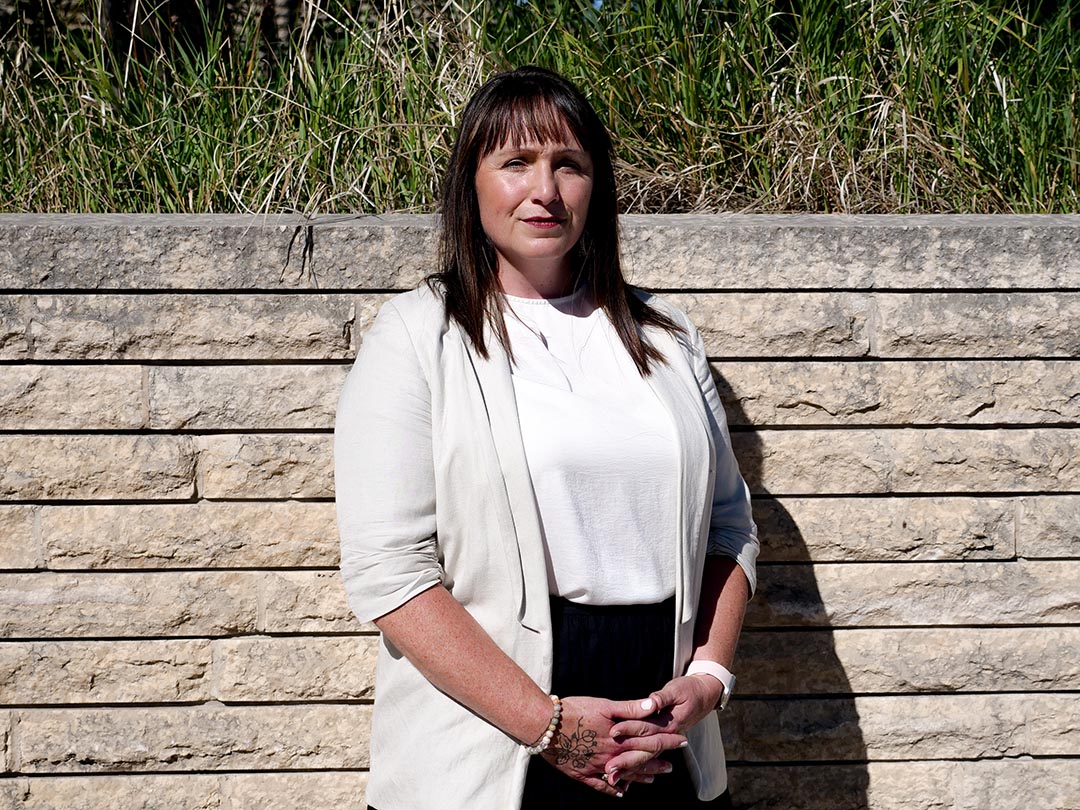
A Métis researcher from Saskatchewan, Dr. Allyson Stevenson’s (PhD) research focuses on Indigenous histories in the Prairies.
“Understanding Canada’s role in its relationship with Indigenous people ... is really critical for all Canadians to know and specifically to respect and appreciate Indigenous peoples’ survivance in these places over time,” she said.
Stevenson is an associate professor in the Department of Indigenous Studies in the College of Arts and Science. She combines archival research, oral history and decolonial approaches to generate critical perspectives on Indigenous peoples’ engagement with the Canadian state. Prior to arriving at USask, Stevenson held a Tier II Canada Research Chair in Indigenous Peoples and Global Social Justice at the University of Regina.
She said understanding the Indigenous history and community knowledge in regions across Saskatchewan is integral to provide insights into current-day issues.
As a child, Stevenson said she enjoyed reading at the public library in Regina and never lost that thirst for new knowledge. As a university student at USask, she said her history professors were extremely encouraging for her to keep asking questions and thinking critically about the knowledge she was gaining.
Combined with knowledge and experience from communities, Elders, and her own family, Stevenson was inspired to deeply explore history through the lens of Indigenous experience, and Saskatchewan's Métis history more specifically. Stevenson’s work brings her in connection with communities across the Prairie provinces, and she said one of the best parts of her work is being able to connect with communities and ask questions that are representative of those communities.
“One of the things I love about my work is the ability to work with different generations ... and I have the ability through my position to bring those generations together,” she said.
Stevenson lauded the support she received from both USask and the communities she connects with in her research.
As Canada celebrates its 158th birthday this year, Stevenson said it was more important than ever to bring together the history and knowledge of place held by Indigenous peoples with contemporary society.
“I’m focusing more on Indigenous peoples’ intellectual, political, spiritual and scientific understandings of place, recognizing that certainly policy and legislative context impacts that, but highlighting that Indigenous peoples’ knowledges are still intact and remain a meaningful and significant aspect of how people see their present and future,” she said.
Steven Rayan
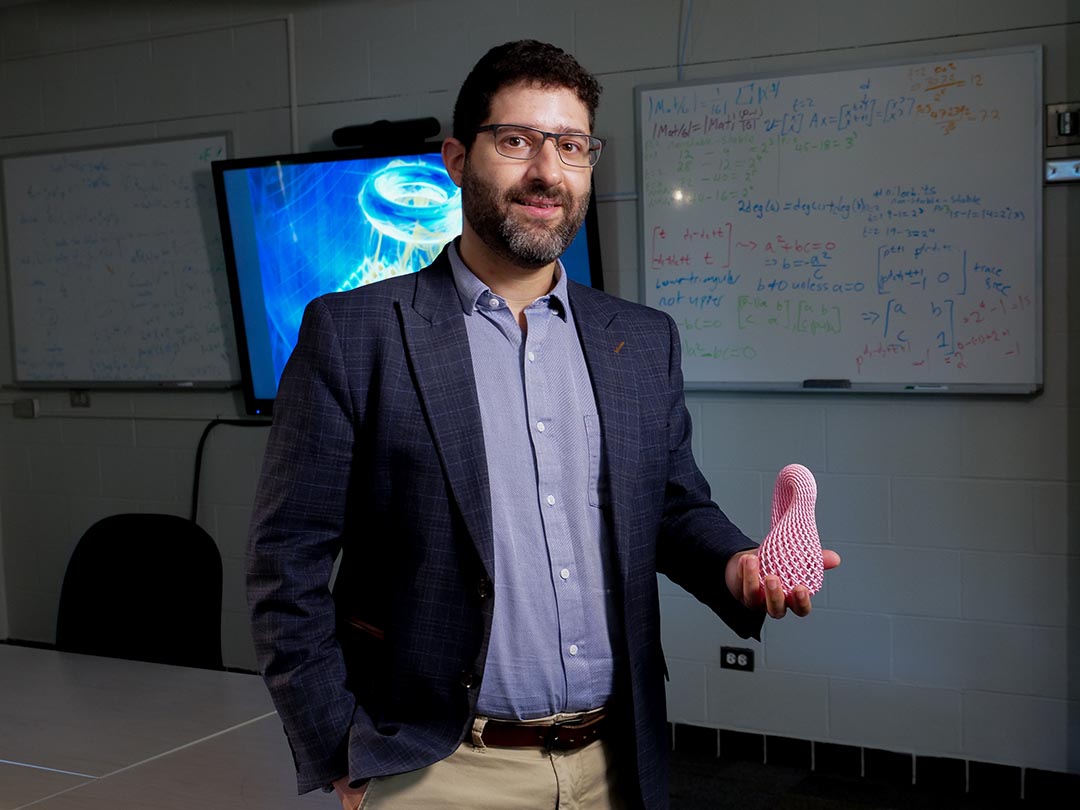
Dr. Steven Rayan (PhD) is a celebrated researcher in the field of mathematics and quantum sciences, and his work leading quantum research projects has led him to international acclaim.
Rayan is the director of USask’s Centre for Quantum Topology and Its Applications (quanTA) and a professor of mathematics and statistics in the College of Arts and Science. He is also the lead for USask’s Quantum Signature Area of Research.
His research explores quantum science and computing, and he has published numerous papers exploring the mathematics behind, and the capabilities of, cutting-edge quantum technology.
Rayan calls quantum the “science of the very small,” exploring and understanding the rules of the incredibly tiny to create tools for the future.
“At that scale, nature might play by slightly different rules than what we see around us. Understanding those rules, maybe even learning how to bend them, can come with the power to make the impossible, possible,” he said.
Rayan said quantum computing can tackle large problems for Canada and the rest of the world. Whether addressing questions around climate change or taking on new pandemics in real time, Rayan said the speed and power of quantum technology is changing the way we approach issues of seemingly insurmountable scope.
“What would be wonderful is a way for us to compute our way out of those problems before they become too large to deal with,” Rayan said. “Quantum computers that leverage quantum science and mathematics in intimate ways are exactly the devices that will do this.”
Rayan lauded the teachers he’s had along the way, and noted his students and colleagues are often his inspiration, bringing new and exciting ideas to the world of quantum mechanics for him to tackle.
Quantum research, as Rayan puts it, has been an exciting area to explore with immense practical success and further potential—which is one of the reasons he loves the work he does. Despite their interconnections, mathematics and quantum science are distinct subjects, and Rayan is appreciative of the fact that, at USask, he has been able to explore both without having to choose between them.
While Rayan noted “quantum” can feel like a scary word, it’s already all around us and in everything, and our understanding of it is being used for the betterment of people today.
“I think sometimes there’s a fear of math, a fear of science ... but I think there’s an innate, deep truth and beauty to these subjects,” Rayan said.
The RSC will be celebrating new fellows, college members and award recipients at the 2025 Celebration of Excellence and Engagement on Nov. 15.
Re-posted from news.usask.ca.

